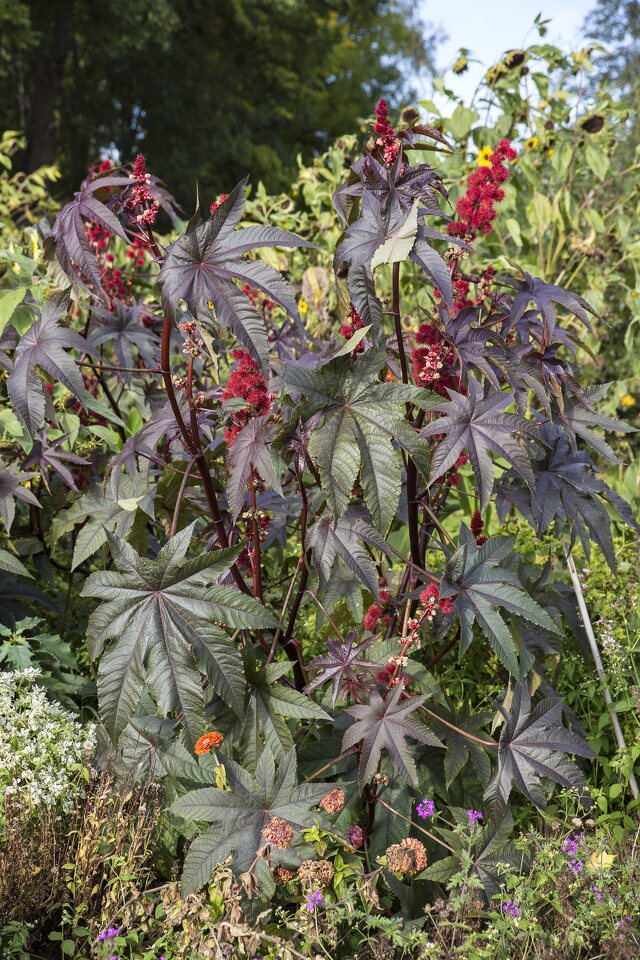
Ricinus communis · paprastasis ricinmedis
- castor bean, castor oil plant
- Wunderbaum
- paprastasis ricinmedis
- parastais rīcinaugs
- rącznik pospolity
en.wikipedia.org/wiki/Ricinus Castor is indigenous to the southeastern Mediterranean Basin, East Africa, and India, but is widespread throughout tropical regions (and widely grown elsewhere as an ornamental plant). Castor seed is the source of castor oil, which has a wide variety of uses. Ricinus is extremely allergenic and is also a very strong trigger for asthma, and allergies to Ricinus are commonplace and severe. The castor oil plant produces abundant amounts of very light pollen, which easily become airborne and can be inhaled into the lungs, triggering allergic reactions. The sap of the plant causes skin rashes. People who are allergic to the plant can also develop rashes from touching the leaves, flowers, or seeds. The toxicity of raw castor beans is due to the presence of ricin. Although the lethal dose in adults is considered to be four to eight seeds, reports of actual poisoning are relatively rare.
Labai nuodingas. Išvesta dekoratyvių veislių, Lietuvoje auginamas. Natūraliai auga Viduržemio regiono pietryčiuose, Rytų Afrikoje, Indijoje.
‥
0 comments
Add a comment